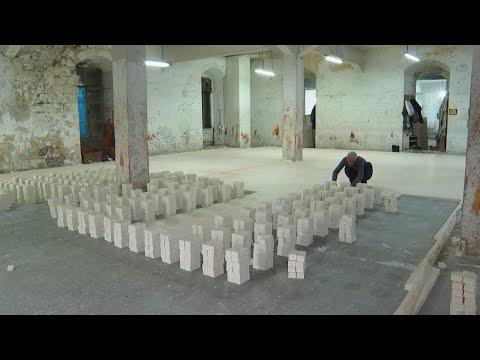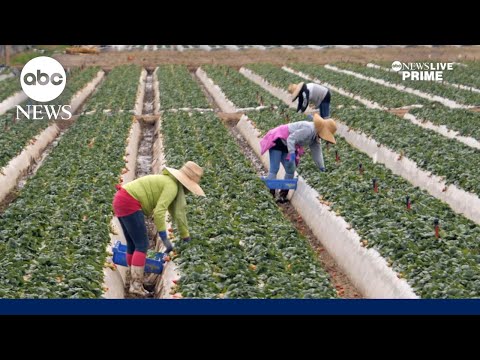(11 Dec 2024)
WEST BANK UNESCO
SOURCE: ASSOCIATED PRESS
RESTRICTION SUMMARY:
LENGTH: 3:21
ASSOCIATED PRESS
Nablus, West Bank – 8 December 2024
1. Wide of worker cutting soap using long-handled cutter
2. Close up of long-handled cutter
3. Various of worker arranging soap blocks
4. Worker wraps soap bars
5. Nael al-Qubbaj, manager of Touqan Soap Factory, presenting the founders of the factory
6. SOUNDBITE (Arabic) Nael al-Qubbaj, Touqan soap factory manager:
"Nablus has been famous for centuries for its production of olive oil soap. The Touqan Soap Factory was established during the Ottoman era in 1872 by brothers Hafiz and Abdel Fattah Touqan. This factory continues to produce olive oil soap under the brand name ‘Al-Muftahain,’ a tradition that has persisted since its founding."
7. Worker cooking soap mix
8. Close up of soap mix
9. Various of worker wrapping soap bars
10. Close up of Nablus soap bars
11. Wide of Touqan soap factory
12. SOUNDBITE (Arabic) Nael al-Qubbaj, Touqan soap factory manager:
"The production capacity of the factory is approximately 600 tons annually, but due to various challenges that have been mentioned, this has decreased to around 300 tons. The owners continue to struggle to preserve this traditional industry. We hope the Palestinian Authority will support this industry by offering various incentives, particularly by exempting it from fees and customs taxes."
ASSOCIATED PRESS
Ramallah, West Bank – 4 December 2024
13. Setup shot of Omar Awadallah, Assistant Minister of Foreign Affairs, entering his office
14. SOUNDBITE (Arabic) Omar Awadallah, Assistant Minister of Foreign Affairs:
"The organization that made this decision, UNESCO, was one of the first to which the State of Palestine became a member. When we talk about Palestinian intangible heritage in relation to soap, we consider it a historical legacy of the Palestinian people, deeply rooted in the history of this land. Soap-making is not just a craft; it is a vital part of Palestinian heritage. Therefore, the significance of this decision lies in UNESCO’s role in preserving the heritage of the Palestinian people, who have inhabited this land since ancient times."
ASSOCIATED PRESS
Nablus, West Bank – 8 December 2024
15. Mid of workers wrapping soap blocks
16. Worker wrapping soap blocks
17. Sign reading (Arabic, English): " Touqan Soap Factory"
18. Touqan soap factory entrance
19. Touqan soap factory building in west Bank city of Nablus
STORYLINE:
The traditional method of soap-making in Nablus has been passed down through generations, becoming an integral part of Palestinian culture.
The United Nations added a traditional method of making soap in the occupied West Bank town of Nablus to the list of the world’s intangible cultural heritage this month.
The traditional process of making soap from olive oil, water, and lye usually takes place after the olive harvest and involves the whole family.
The ingredients are cooked for five days before the soap is left to dry for two months.
The Touqan Soap Factory was established during the Ottoman era in 1872 by brothers Hafiz and Abdel Fattah Touqan, Nael al-Qubbaj, Touqan soap factory manager, stated.
"Nablus has been famous for centuries for its production of olive oil soap. This factory continues to produce olive oil soap under the brand name ‘Al-Muftahain,’ a tradition that has persisted since its founding,” he added.
The Palestinian Ministry of Foreign Affairs and Expatriates welcomed the decision.
Dozens of factories used to operate in the occupied West Bank, just a few still remain functioning.
Find out more about AP Archive: http://www.aparchive.com/HowWeWork
Twitter: https://twitter.com/AP_Archive
Facebook: https://www.facebook.com/APArchives
Instagram: https://www.instagram.com/APNews/
You can license this story through AP Archive: http://www.aparchive.com/metadata/youtube/015e46bd19d840569a0ac3cbb0e422bf
Author: AP Archive
Go to Source
News post in December 16, 2024, 6:05 pm.
Visit Our Sponsor’s:
News Post In – News





